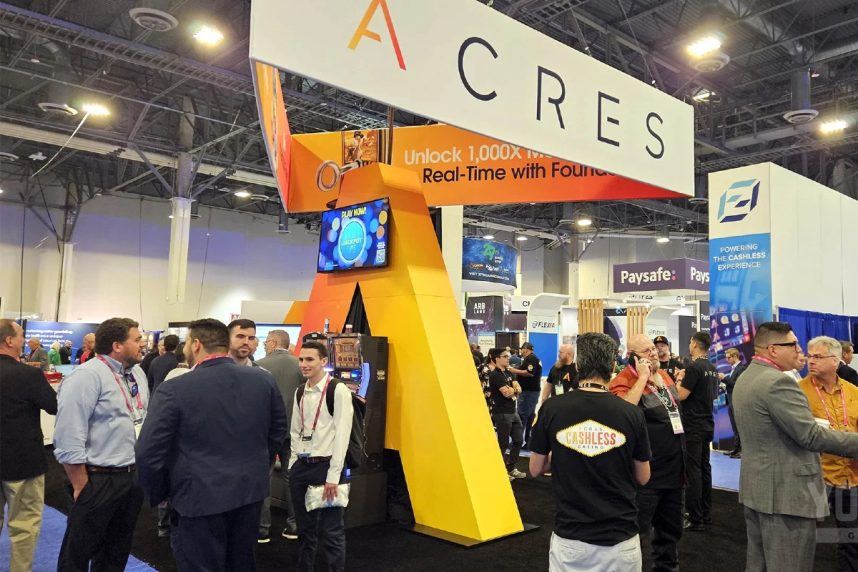Posted on: March 14, 2024, 12:34h.
Last updated on: March 13, 2024, 01:07h.
Acres, a leading gaming manufacturer based in Las Vegas, has developed new technology to assist casinos in better determining the true value of players enrolled in their loyalty program.

Casinos in the U.S. spend more than $25 billion a year in marketing to slots players. Acres Manufacturing believes its new customer rating product called “Player Budget” can help casinos better allocate the incentives based on more in-depth customer intelligence data.
Acres says its Player Budget deviates from using “theoretical” rating systems — those that try to predict a player’s budget and willingness to lose — with a program that identifies an individual’s betting habits and spending limits. The Player Budget, which can be incorporated into Acres’ proprietary Foundation hardware that tracks each slot machine’s performance, determines each player’s largest in-session loss and assigns that person a personal spending threshold.
Casinos waste untold billions each year through inefficient marketing offers, simply because they can’t accurately identify a player’s value,” said Noah Acres. “We’re proud to introduce yet another innovative solution that will help deliver new players and new profits for our operator customers.”
The program, Acres says, allows casino marketers to customize incentives based on precise profit potential.
Incentivize, Not Reward
Acres says the goal of the Player Budget service is to improve a casino’s ability to calculate which players are more valuable for retention.
Theoretical rating processes typically assign a player’s value based on their overall losses. But Acres says two players who both lose $100 on a slot machine during a session can be vastly different in terms of their worth to the house.
For instance, player A inserts $100 and wins a few spins before eventually losing their bankroll. Acres says that player is considered less valuable than player B, who quickly loses their initial $100 and then inserts $700 to keep playing. Player B recoups his original loss and continues to play. At the end of the session, they’re back down $100.
“Player B has a demonstrated ability to spend eight times more than Player A, and the casino marketing team should therefore prioritize return visits from Player B over Player A,” Acres’ whitepaper on the Player Budget explains.
Acres says some loyalty marketing schemes have become counter-effective. Marketing teams, the company says, should be focused on incentivizing, not rewarding, players for their loyalty.
Casinos have great difficulty refining marketing offers to maximize profit because their entire system is built on rewards (which are entitlements) for past play rather than incentives for new play,” the whitepaper continued. “Players know that rewards are determined by coin-in, and a quick Google search shows a host of websites, books, and videos instructing players on how to maximize rewards while minimizing spend.”
One common trick is for a slots player to remove their loyalty card when the slot game enters a bonus round. Removing the card inflates the person’s spend, as the bonus money isn’t counted against the player’s overall bets. While some floor management systems can now continue to track the rewards number when it’s quickly removed, many legacy operations cannot.
Problem Gambling Insights
Along with improving how marketers might incentivize valuable loyalty players, Acres’ Player Budget has tools to help curb problem gambling. The Player Budget can detect impulsive behavior in real time, allowing casinos to intervene.
The impulsive trigger is based on a player’s historical metrics. If the person suddenly begins betting more during a visit, a welfare check can be initiated.



